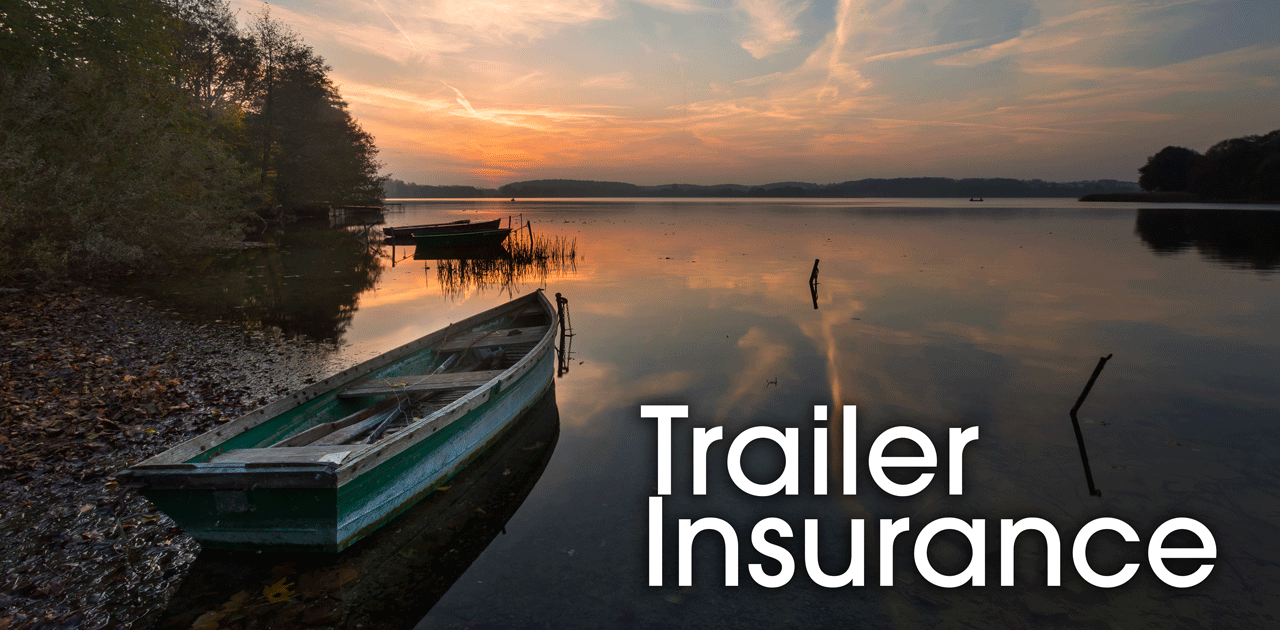With fishing season approaching it’s a good reminder to have your trailers insured! Whether for personal use versus business use, a trailer should always be insured. The type of coverage depends on the purpose of the trailer.The types of trailers included under a trailer endorsement or specialized policy include:
- Boat trailers (Generally covered within a boat policy along with boat and motor etc. as part of the whole value of the boat)
- Car trailers
- Camping trailer
- Horse trailers
“Insurance options for trailers are varied,” said Judy Sheridan, Customer Service Agent at Marshfield Insurance.A trailer insurance policy typically includes:
- Liability
- Comprehensive (coverage for damage due to theft, vandalism, fire, and severe weather)
- Collision coverage will help with repairs to your trailer if damaged in a traffic collision
- Contents coverage is for your personal items being transported on the trailer that get damaged if an occurrence happens
“Liability coverage protects you in the event of an at fault accident should the trailer become unhitched and cause and accident or possibly swing out too far and cause damage to a third party. Many trailers can be very costly and proper coverage in the event of physical damage protects that investment,” added Sheridan.Most personal policies automatically include liability coverage for hauling trailers whether they are listed on the policy or not, physical damage coverage on the other hand needs to be endorsed / added.Carmella Moon, Commercial Service Agent, assists customers with commercial trailer coverage.“On the commercial lines side, owned trailers are not automatically covered for liability and/or physical damage once they are hooked up to a pulling unit. In order for trailers to have coverage, they must be scheduled on the commercial auto policy,” she said. “Once scheduled, you can decide to cover it for liability only or liability and physical damage.”Liability provides coverage if the trailer damages other people’s property. With physical damage, you can opt for comprehensive (comp.) and/or collision. Comprehensive (comp.) coverage will apply if the trailer is stolen, there is damage due to hail, fire, tree falls on it or an animal runs into it.Collision coverage applies when the trailer collides with an other object. For example, the trailer becomes unhitched and collides with a tree; in the event of unsafe road conditions, the trailer loses control and strikes a guard rail; or the trailer is backed up into another object.“If pulling a non-owned trailer, you should contact your insurance agent to see if your policy will provide coverage,” said Moon. “If the vehicle pulling the trailer is insured on a Commercial Auto policy, the trailer should also be schedule since coverage doesn’t automatically extend from the pulling unit.”Moon recommends insurance on trailers to protect your investment in the trailer, to also protect yourself in the event your trailer damages other people’s property or to protect yourself for liability in the event something falls off of your trailer and damages other’s property.“At Marshfield Insurance, we have personal lines agents and commercial lines agents that focus on their specific area and can sit down with you, get to know you and your insurance needs and wants, and also work with you to get the coverage that best meets those needs and wants,” said Moon.“Marshfield Insurance agency is dedicated to providing you information so you can decide the proper coverage for your situation and the items you possess so there is no gap in coverage which in turn protects you as well as your assets,” added Sheridan.Be sure to discuss with your agent coverage for the items on or in your trailer. There is not automatic coverage for the items that you are hauling on or carrying in your trailer on either the personal lines or commercial lines side that extends from the auto policy.Call us at 715-384-4443!

